In Columbus, where winters bring snow and ice while summers swing to hot and humid, homeowners need roofing that can handle it all. Traditional asphalt shingles may look fine at first, but they often require replacement every 15 to 20 years. That cycle adds up in both money and stress.
That’s why more residents are turning to advanced metal roofing solutions. Modern metal systems aren’t just strong—they’re also energy-efficient, sustainable, and available in styles that enhance curb appeal. From high-tech coatings to precision installation methods, Columbus homeowners now have access to roofing innovations designed for long-term value.
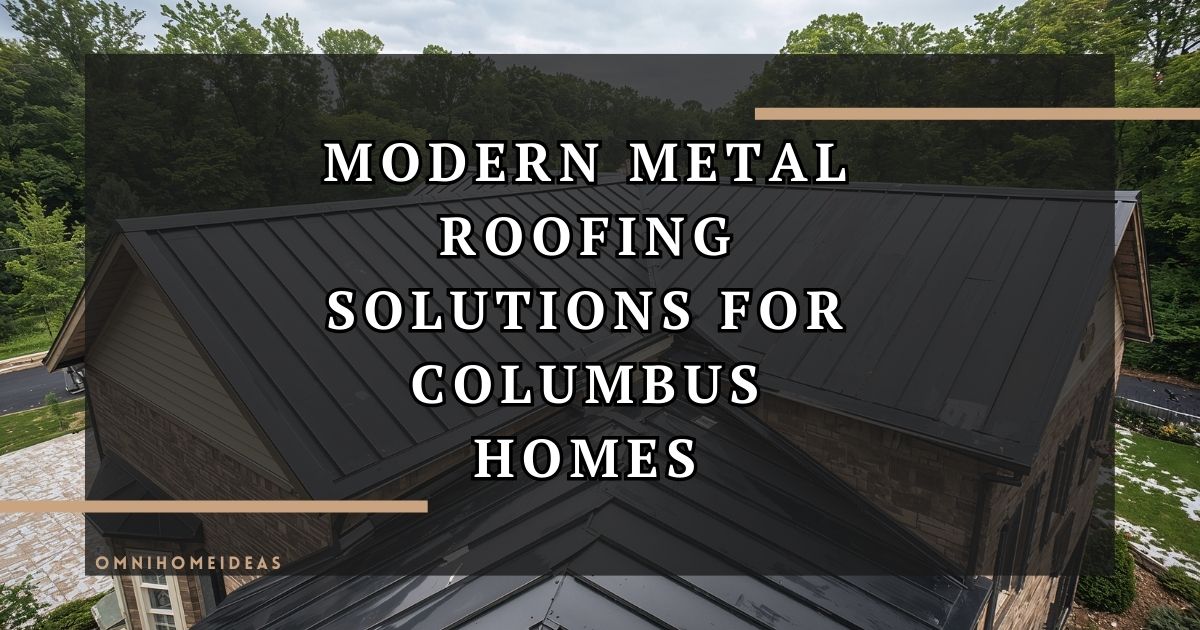
The Evolution of Metal Roofing
Metal roofing has transformed from its early days of corrugated tin on barns to a premium residential solution. Innovations in materials, coatings, and design have made it one of the fastest-growing roofing types in the U.S.
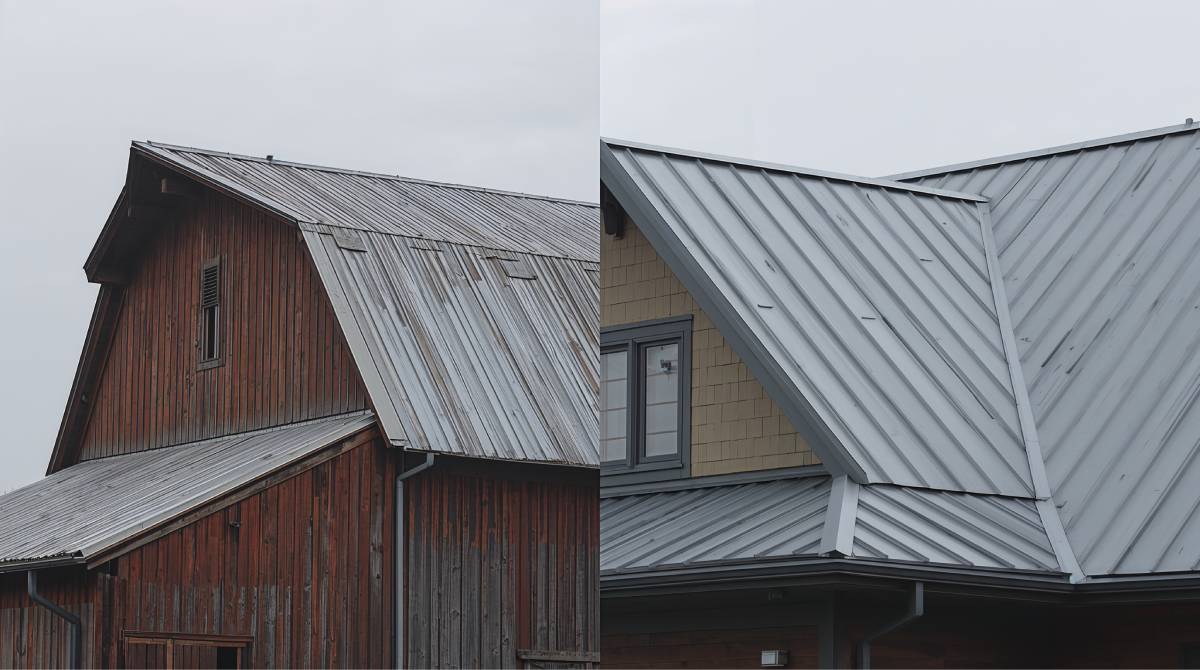
For Columbus homeowners, this means durability against freeze-thaw cycles, resistance to high winds, and better energy performance than shingles—all in a roof that can last 40 to 70 years.
Advanced Materials and Coatings
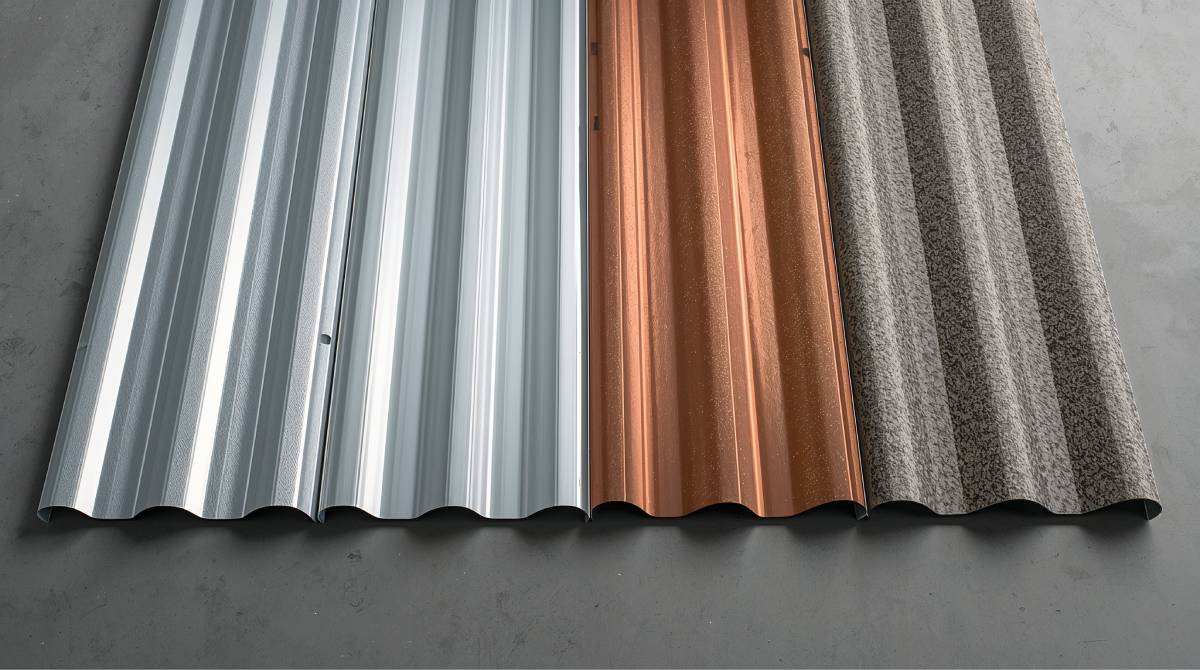
The metal roofing industry has embraced cutting-edge materials that offer strength and beauty:
- Galvalume Steel: Highly resistant to rust, perfect for Ohio’s humid summers.
- Aluminum Roofing: Lightweight and corrosion-proof, ideal for long-lasting installations.
- Copper and Zinc Panels: Premium choices that naturally age into elegant patinas.
- Stone-Coated Steel: Mimics the look of tile or slate but offers metal’s durability.
Reflective coatings are especially valuable in Columbus. They bounce back solar heat, helping attics stay cooler and reducing strain on air conditioning systems.
Sustainability and Eco-Friendly Solutions
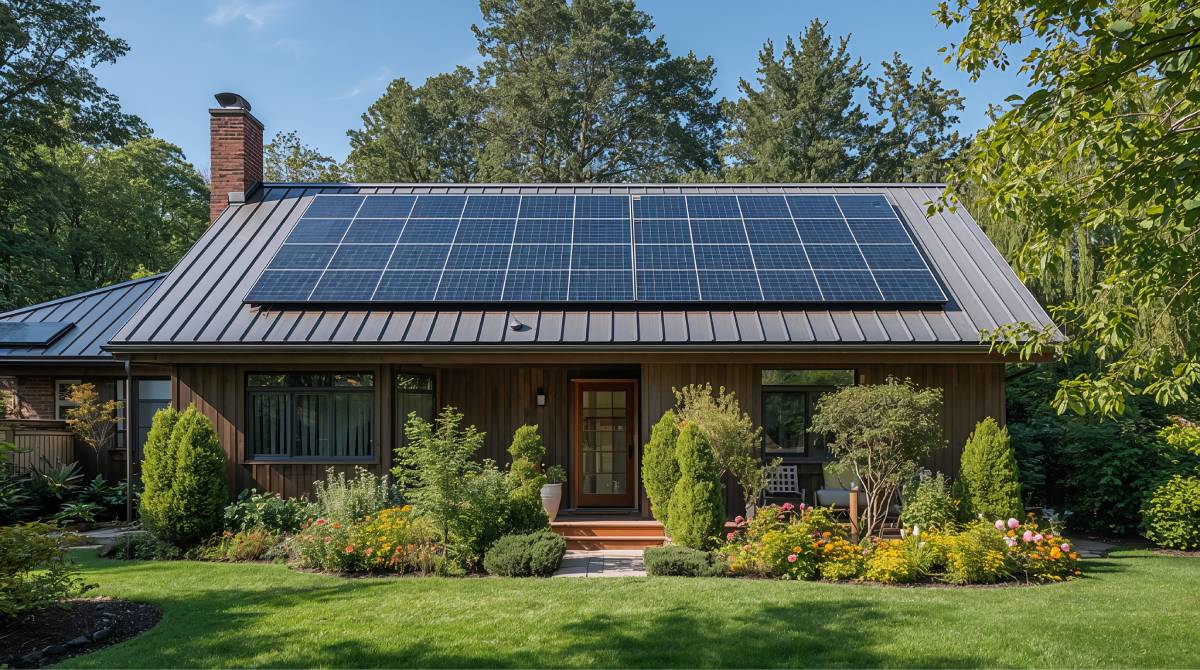
Columbus residents are increasingly eco-conscious, and metal roofing fits that lifestyle. Most panels contain recycled content and are 100% recyclable after decades of service. By contrast, asphalt shingles contribute millions of tons of waste to landfills each year.
Some advanced roofing systems also integrate seamlessly with solar panels—an appealing feature as more Ohio homeowners invest in renewable energy.
Design Options for Every Columbus Neighborhood

From historic German Village homes to modern builds in Dublin, Columbus neighborhoods showcase a wide range of styles. Advanced metal roofing solutions can be tailored to fit them all:
- Standing Seam Panels provide a modern, streamlined look.
- Metal Shingles mimic traditional cedar or slate.
- Stone-Coated Steel adds warmth and texture for suburban homes.
With dozens of colors and finishes, metal roofs blend seamlessly with both classic and contemporary designs.
Installation Innovations

Advanced systems rely on improved installation methods that enhance performance:
- Hidden fasteners eliminate leak-prone screw holes.
- Interlocking panels boost wind resistance, crucial during Ohio storms.
- Specialized underlayments add a second line of defense against moisture.
- Digital measurements and drone inspections help contractors reduce waste and improve accuracy.
For Columbus homeowners, this means faster, cleaner installs and roofing systems built to last.
Smart Roofing Systems
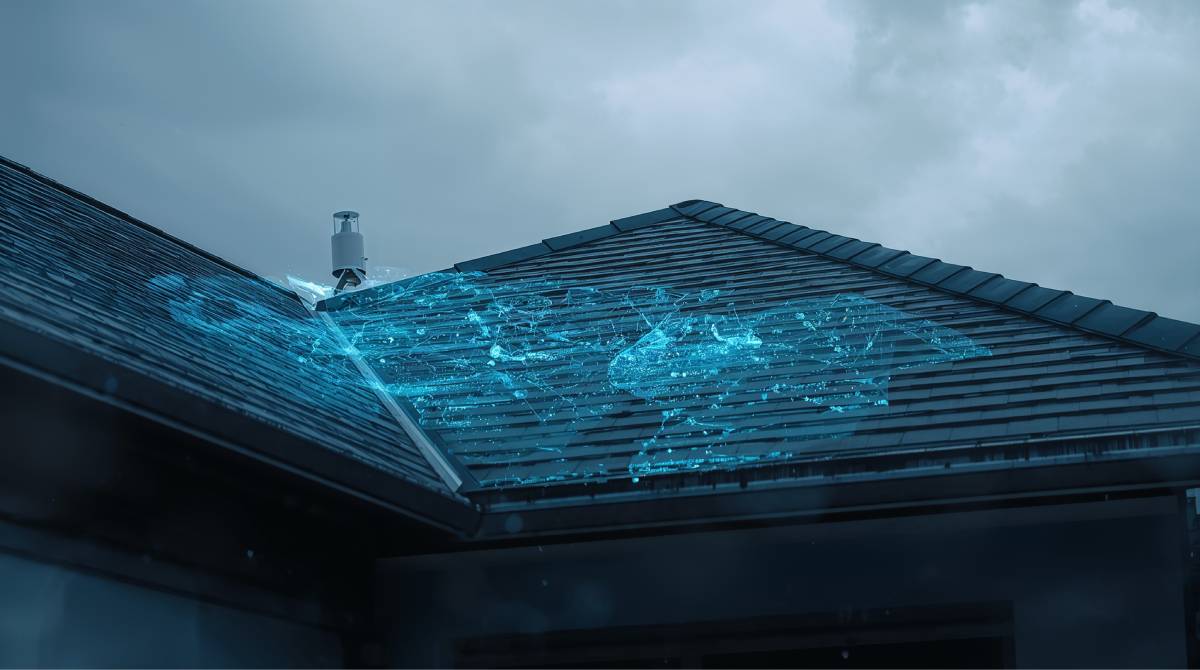
The next wave of roofing is “smart.” Advanced metal roofing can integrate with sensors that monitor moisture levels, roof temperature, and even snow load. These early-warning systems give homeowners peace of mind, allowing them to address small issues before they turn into emergencies.
Comparing Advanced Metal Roofing to Other Options
| Feature | Asphalt Shingles | Tile Roofing | Advanced Metal Roofing |
|---|---|---|---|
| Lifespan | 15–20 years | 30–40 years | 40–70+ years |
| Weight | Moderate | Heavy | Light to Moderate |
| Maintenance | Frequent | Moderate | Low |
| Energy Efficiency | Low | Medium | High (reflective coatings) |
| Eco-Friendliness | Poor | Fair | Excellent (recyclable) |
| Design Options | Limited | Moderate | Wide variety |
Why Metal Roofing Works for Columbus Weather
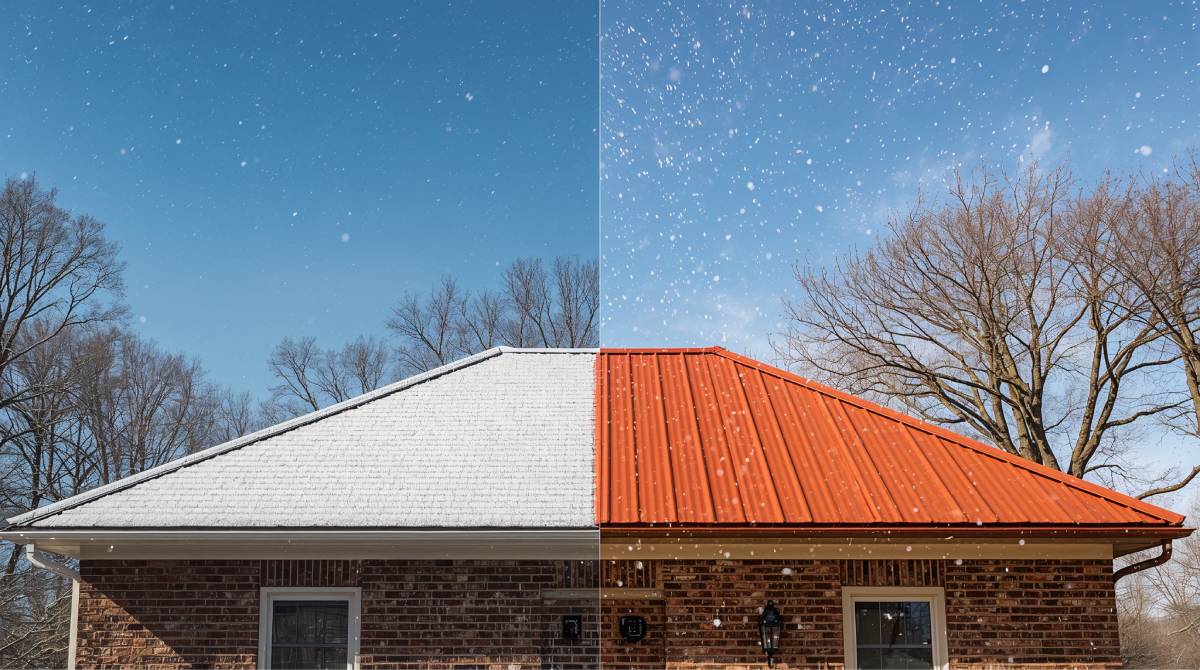
Columbus homes face snow in January, thunderstorms in May, and blazing heat in July. Advanced metal roofing is uniquely suited to handle these extremes:
- Snow sheds quickly, preventing ice dams.
- Panels resist hail and storm debris better than shingles.
- Reflective coatings reduce cooling costs in the summer.
- Durable finishes prevent rust and fading in humid conditions.
It’s a year-round solution built for central Ohio’s unpredictable climate.
Maintenance and Care

While metal roofs are low-maintenance, Columbus homeowners should still plan for:
- Annual inspections to check for wear around flashing and fasteners.
- Seasonal gutter cleaning to maintain water flow.
- Occasional rinsing to remove pollen, dust, and debris.
With simple upkeep, these systems can last half a century or longer.
Partnering With the Right Installer
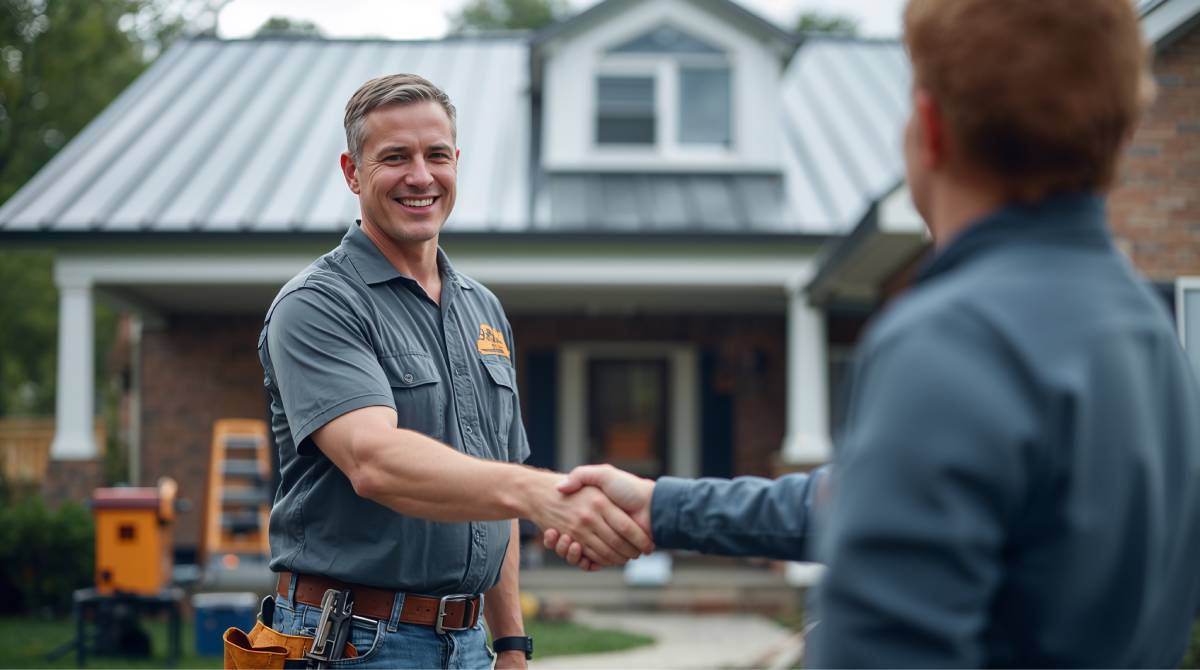
Advanced solutions require advanced expertise. Choosing a trusted Columbus contractor ensures proper installation, warranty protection, and peace of mind. A skilled installer will tailor the roof to your home’s design and local climate challenges.
Working with companies specializing in advanced metal roofing solutions gives you confidence that your investment will pay off for decades.
Frequently Asked Questions
How long do advanced metal roofs last in Columbus?
Most advanced systems last 40–70 years depending on the material and maintenance—far longer than asphalt shingles.
Can a metal roof handle Ohio snow and storms?
Yes. Panels are designed to shed snow quickly, resist hail impact, and stay secure in high winds.
Do metal roofs lower energy bills?
They can. Reflective coatings and proper ventilation may reduce cooling costs by up to 20% in summer.
Is advanced metal roofing worth the higher cost?
Yes. While the initial price is higher, the lifespan, low maintenance, and energy savings make it more affordable long term.

